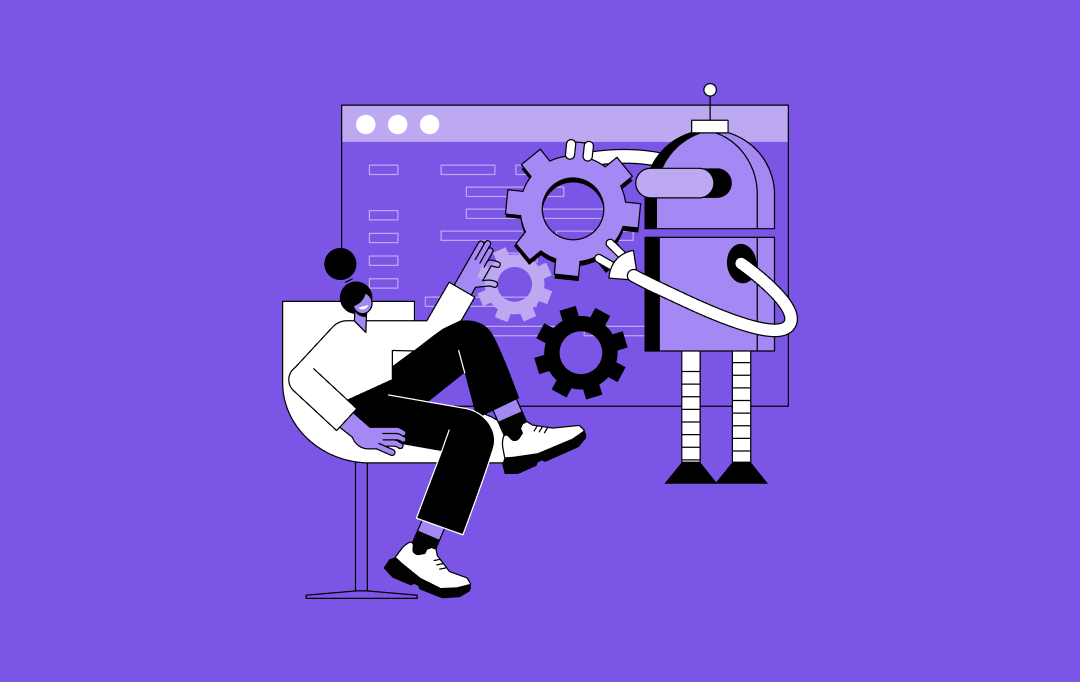- HRMS: What It Is and How It Works
- The Key Advantages of Implementing HRMS
- Centralized Employee Data
- Effortless Recruitment
- Simplified Compliance
- Real-Time Performance Insights
- Accurate Payroll Management
- Data-Driven Decision Making
- Scalable HR Processes
- Real-World Use Cases of HR Management Systems
- Walmart
- Mayo Clinic
- General Motors (GM)
- Step-by-Step Approach to Building Your HRMS Solution in Dubai
- Conduct a Comprehensive Needs Analysis
- Define Clear Objectives and Goals
- Assemble a Skilled Development Team
- Choose the Right Technology Stack
- Design User-Friendly Interfaces
- Develop Core HRMS Modules
- Integrate Security and Data Privacy Measures
- Conduct Thorough Testing and Quality Assurance
- Deploy and Provide Ongoing Support
- Must-Have Features for a Cutting-Edge HRMS
- Employee Information Management
- Recruitment and Onboarding Tools
- Attendance and Leave Management
- Performance Evaluation Modules
- Payroll and Benefits Administration
- Compliance and Regulatory Reporting
- Training and Development Management
- Employee Self-Service Portals
- Analytics and Data-Driven Reporting
- How Much Does It Cost to Develop HRMS in Dubai?
- Factors Affecting The Cost to Develop HRMS in Dubai
- Complexity of Design
- Complexity of Backend Development
- Third-Party Integrations
- Security Measures
- Compliance Measures
- Platform Selection
- Technologies Used
- Complexity of Features
- Emerging Trends Shaping the Future of HRMS Software
- AI-Driven Workforce Analytics
- Hyper-Personalization for Employee Experience
- Integration with IoT for Workplace Efficiency
- Blockchain for Secure Credential Verification
- Emphasis on DEI Metrics
- Self-Service Automation Through Chatbots
- Key Challenges and Solutions in Developing HRMS in Dubai
- Regulatory Compliance with Labor Laws
- Customization to Meet Diverse Business Needs
- Integration with Existing Systems
- Data Security and Privacy Concerns
- High Development and Maintenance Costs
- How Appinventiv Can Help You Building an HRMS Software In Dubai
- FAQs
- Q. Why is HR Software in UAE Important to Businesses?
- Q. What is the cost of HRMS software development in Dubai?
- Q. What Technologies are Leveraged in HRMS software development in Dubai?
- Q. How Does SaaS-Based HRMS Software Benefit UAE Businesses?
In Dubai’s bustling business hub, where innovation meets ambition, efficient operations are the secret sauce for staying ahead. With its dynamic economy and diverse workforce, managing people – the most valuable asset of any organization – can be daunting. That’s where Human Resource Management Software (HRMS) steps in to take the load off.
HRMS has become a must-have in a city as fast-paced as Dubai, where compliance is complex and expectations are sky-high.
The stats don’t lie: the HR software market, valued at $20.51 billion in 2024, is projected to hit $44.28 billion by 2031, growing at an impressive CAGR of 10.10%. Businesses are hopping on the HRMS bandwagon to automate mundane tasks, drive smarter decisions, and keep their workforce happy and engaged.
So, without further ado, let’s explore HRMS software development in Dubai, its benefits, and why it’s reshaping workforce management in Dubai.
HRMS: What It Is and How It Works
HRMS is a comprehensive software solution designed to automate and manage core human resource functions such as recruitment, payroll, attendance, employee performance, and compliance. By integrating these activities into a unified system, HRMS minimizes manual tasks and allows HR teams to focus on strategic initiatives like workforce planning and employee engagement.
HRMS software development in Dubai works by centralizing employee data, automating tasks, and providing tools to manage HR functions seamlessly.
Here’s how:
Centralized Data and Integration: HRMS consolidates all employee data into one system, ensuring easy access and eliminating the need for multiple tools. It also integrates HR functions like payroll, attendance, and compliance, enabling smooth workflows.
Task Automation: Repetitive HR processes such as payroll calculations, attendance tracking, and tax deductions are automated, saving time and reducing errors.
Self-Service and Accessibility: Employees can use self-service portals to update personal information, access payslips, and request leaves, minimizing manual HR involvement. Cloud-based HRMS ensures real-time access from any location, supporting hybrid and remote work.
Analytics and Insights: HRMS software development in Dubai embeds AI in the hr management system that provides real-time reports and data-driven insights, helping HR teams analyze workforce trends and make informed decisions.
The Key Advantages of Implementing HRMS
Businesses experience numerous advantages by leveraging a payroll management system in Dubai. It streamlines and automates critical HR functions, ensuring efficiency and reducing manual errors. Let’s explore these advantages of building an HRMS software for businesses.
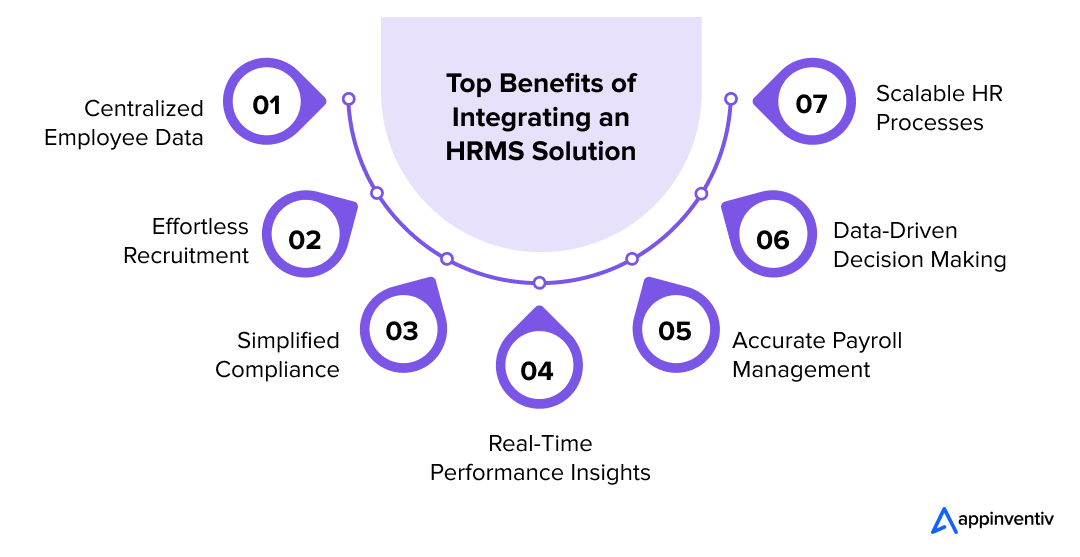
Centralized Employee Data
A centralized employee data system ensures that all information is stored in a single, secure location. This allows HR professionals and managers to access crucial employee details effortlessly, reducing the risk of data inconsistencies.
Centralized data also aids in streamlining communication, ensuring transparency across departments. Quick access to employment history, job roles, and performance metrics makes decision-making more informed and strategic.
Effortless Recruitment
HRMS software development in Dubai automates and streamlines the recruitment process, from job postings to onboarding new hires. Integrated applicant tracking systems (ATS) allow recruiters to filter and evaluate candidates quickly based on skills, experience, and cultural fit.
This leads to faster hires and a better recruitment experience for candidates and organizations. Automation ensures no potential talent is overlooked while reducing the administrative burden of manual recruitment tasks.
Simplified Compliance
HRMS tools help organizations comply with local labor laws and regulations by automating compliance tracking and documentation. These systems often have built-in templates and updates reflecting legal changes, ensuring that policies remain current. Automated compliance features minimize the risk of human error, reduce legal exposure, and ensure adherence to employment contracts, wage regulations, and safety requirements.
Real-Time Performance Insights
With performance management modules in HRMS software, organizations can track and analyze employee performance in real-time. This enables managers to provide immediate feedback, set realistic goals, and measure progress accurately.
Real-time insights support proactive performance management, helping identify strengths and areas needing improvement. This continuous evaluation fosters a culture of accountability and drives overall productivity.
Accurate Payroll Management
HRMS software development in Dubai ensures accurate payroll processing by seamlessly integrating employee attendance, leaves, tax information, and salary data. Automation reduces errors associated with manual payroll calculations, providing timely and precise salary disbursements.
Additionally, compliance with tax regulations and labor laws is maintained effortlessly, while detailed payroll reports facilitate transparency and trust among employees and management.
Data-Driven Decision Making
HRMS platforms provide robust analytics and reporting tools that enable data-driven decision-making. With insights into workforce trends, turnover rates, and employee satisfaction, organizations can make strategic HR decisions backed by data rather than intuition.
Predictive analytics also forecast trends in recruitment, employee retention, and performance, helping leadership make proactive and effective business decisions.
Scalable HR Processes
As organizations grow, HRMS systems adapt and scale to meet expanding business needs without compromising efficiency. Whether adding new departments, locations, or employees, HRMS solutions seamlessly adjust processes to accommodate these changes.
Scalability ensures that recruitment, payroll, performance management, and compliance processes remain consistent and efficient, allowing the organization to grow without logistical and administrative complications.
Real-World Use Cases of HR Management Systems
Businesses leverage HRMS for various purposes, from streamlining recruitment to enhancing employee engagement and optimizing performance management. Let’s explore how these systems drive efficiency and improve decision-making. Here’s a look at some real-world examples.
Walmart
Walmart uses HRMS solutions to manage its vast workforce across stores globally. The system handles scheduling, payroll, recruitment, and employee training, ensuring operational efficiency and high employee engagement across thousands of locations.
Google leverages its HRMS for talent acquisition, employee performance tracking, and professional development. The system supports workforce analytics, succession planning, and global compliance, helping Google maintain a highly motivated and productive workforce.
Mayo Clinic
Mayo Clinic utilizes an HRMS to manage healthcare staff efficiently. The system supports employee scheduling, compliance with healthcare regulations, onboarding, and continuous training to ensure that all healthcare professionals meet required certifications and deliver top-tier patient care.
General Motors (GM)
GM employs an HRMS to streamline workforce operations across multiple factories and plants worldwide. The system handles recruitment, employee performance tracking, shift scheduling, compliance monitoring, and safety training, ensuring smooth manufacturing operations and adherence to labor laws.
Also Read: ERP software development in Dubai
Step-by-Step Approach to Building Your HRMS Solution in Dubai
Here are the strategic steps to develop HR software in Dubai. Follow these clear and structured steps to ensure a seamless implementation and optimal performance. Let’s break down the process into manageable and actionable phases.
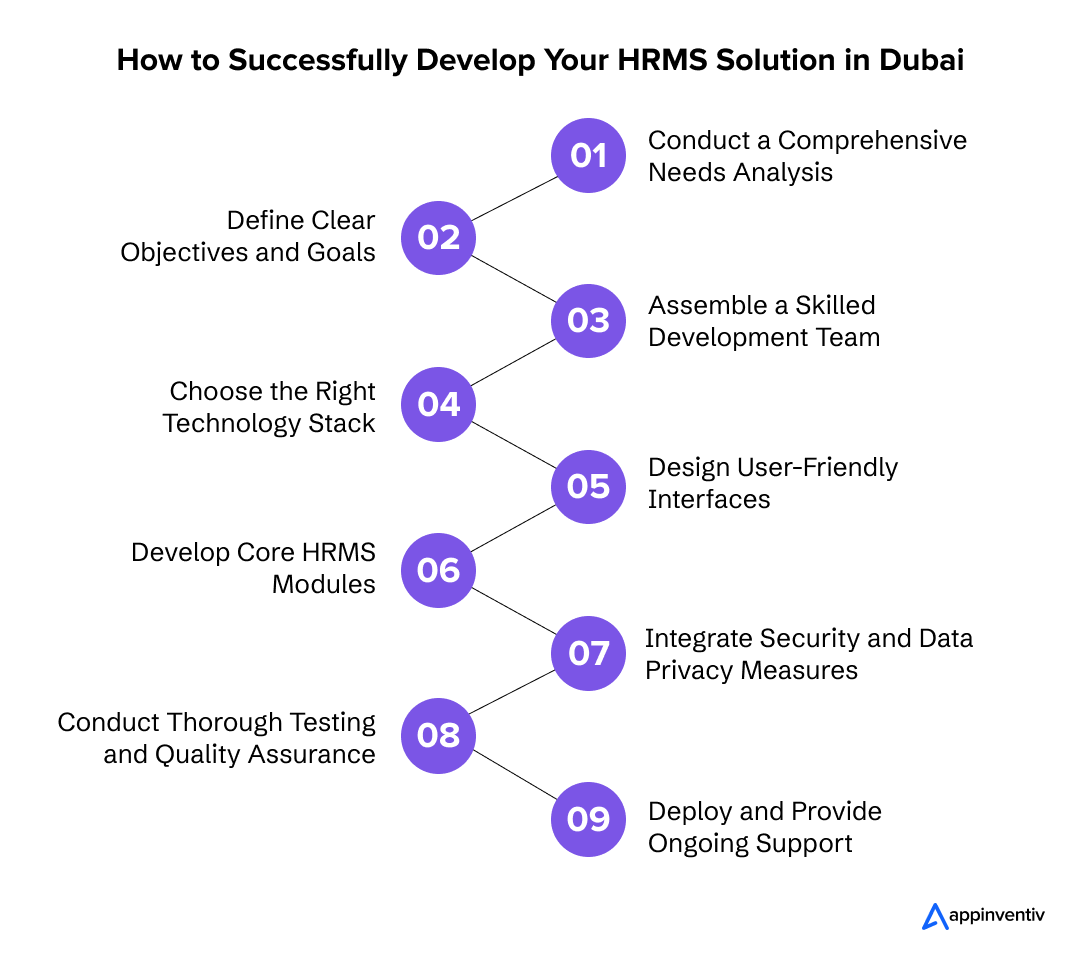
Conduct a Comprehensive Needs Analysis
Start by understanding your organization’s HR needs, including recruitment, payroll, and performance management. Collaborate with stakeholders to identify pain points in current processes and prioritize features. Document these requirements to guide the human resource management system development process effectively.
Things to Be Taken Care of:
- Collaborate with stakeholders to identify pain points for recruitment, payroll, and performance management.
- Prioritize key features that address immediate challenges in HR processes.
- Document all requirements thoroughly to streamline the development process.
Define Clear Objectives and Goals
Establish clear goals for the employee management software in Dubai, such as automating payroll, enhancing employee engagement, or ensuring compliance with UAE labor laws. Break these objectives into actionable milestones to maintain focus throughout development.
Things to Be Taken Care of:
- Set specific goals like automating payroll, improving employee engagement, or ensuring UAE labor law compliance.
- Break objectives into actionable milestones to maintain focus and measure progress.
- Align goals with long-term organizational strategies for better outcomes.
Assemble a Skilled Development Team
Hire experienced developers, UI/UX designers, and project managers with HRMS expertise. Collaborate with local professionals in Dubai to ensure the system complies with regional labor laws and cultural nuances. Establish clear communication channels for seamless project execution while building hr software in Dubai.
Things to Be Taken Care of:
- Hire experienced developers, UI/UX designers, and project managers with HRMS expertise.
- Collaborate with local professionals to ensure compliance with UAE labor laws and cultural considerations.
- Establish clear communication channels for seamless project execution.
Choose the Right Technology Stack
Select a robust and scalable technology stack that aligns with your HRMS needs. Consider SAFE frameworks and tools that support modularity, cloud integration, and data analytics. Ensure the stack is capable of future updates to accommodate business growth when developing HRMS software in Dubai.
Things to Be Taken Care of:
- Opt for a scalable and modular technology stack to support future business growth.
- Ensure compatibility with cloud integration, data analytics, and HR automation features.
- Prioritize frameworks that allow regular updates and system enhancements.
Design User-Friendly Interfaces
Focus on creating intuitive interfaces to enhance usability for HR personnel and employees. Use responsive design principles to make hr and payroll software in Dubai more accessible across devices. Incorporate visual elements like dashboards for better navigation and data insights.
Things to Be Taken Care of:
- Focus on intuitive designs that improve usability for HR personnel and employees.
- Incorporate responsive design principles for accessibility across all devices.
- Use visual dashboards and data insights to streamline navigation and reporting.
Develop Core HRMS Modules
Build essential modules such as employee onboarding, attendance tracking, payroll management, and performance evaluation. Prioritize customization to address specific business needs while maintaining flexibility for future updates.
Things to Be Taken Care of:
- Build essential modules such as onboarding, attendance tracking, payroll, and performance management.
- Allow customization to address unique business requirements.
- Ensure flexibility in design to support future updates or expansions.
Integrate Security and Data Privacy Measures
Ensure the HRMS adheres to UAE’s data protection laws. Implement multi-factor authentication, role-based access control, and data encryption. Regularly audit and update security protocols to prevent breaches while focusing on HRMS software development in Dubai.
Things to Be Taken Care of:
- Comply with UAE’s data protection laws by implementing robust security features.
- Use multi-factor authentication, role-based access control, and data encryption.
- Regularly audit and update protocols to prevent data breaches and security risks.
Conduct Thorough Testing and Quality Assurance
Perform rigorous testing to identify and fix bugs across modules. Include usability testing to gather feedback from end-users. Ensure hr and payroll software development in Dubai performs seamlessly under different conditions, from normal operations to heavy loads.
Things to Be Taken Care of:
- Perform rigorous testing to identify and fix bugs across all modules.
- Gather end-user feedback through usability testing for a seamless experience.
- Ensure the software performs efficiently under varying operational loads.
Deploy and Provide Ongoing Support
Deploy the HRMS in a phased manner to minimize disruptions. Train employees to use the system effectively and address their concerns. Offer continuous support, updates, and maintenance to ensure long-term efficiency and user satisfaction.
Things to Be Taken Care of:
- Deploy the HRMS in phases to minimize business disruptions during implementation.
- Train employees to adapt to the new system and address their queries effectively.
- Offer ongoing support, maintenance, and updates for long-term efficiency and satisfaction.
Must-Have Features for a Cutting-Edge HRMS
Here are some prominent features of HRMS software that boost efficiency and drive employee engagement. These tools ensure seamless communication, robust data analytics, and a more connected workforce. Embracing these features can drive productivity and foster a stronger organizational culture.
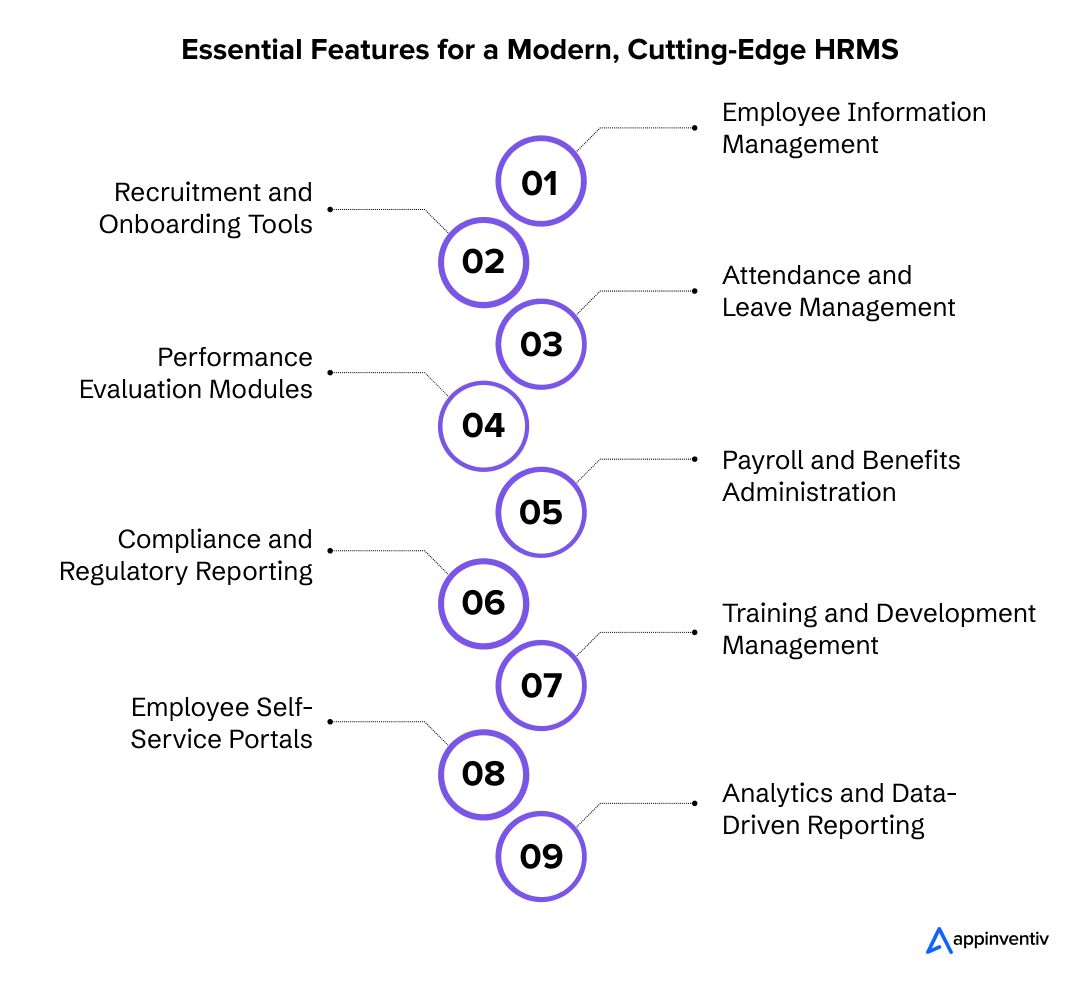
Employee Information Management
Maintain a centralized database of employee records, including personal details, job roles, and contact information. Ensure quick access, seamless updates, and data security across all HR operations while developing human resource management software in Dubai.
Recruitment and Onboarding Tools
Automate job postings, candidate screening, and interview scheduling to streamline recruitment. Facilitate a structured onboarding experience with task management and workflow automation while building an HRMS software in Dubai.
Attendance and Leave Management
Track work attendance, shifts, and time logs in real-time with accurate reporting. Efficiently handle leave requests, approvals, and accruals to maintain workforce transparency and balance.
Performance Evaluation Modules
Conduct regular employee performance reviews with customizable templates and evaluation criteria. Provide actionable feedback and goal tracking to support employee development and career progression.
Payroll and Benefits Administration
Automate payroll processing with precise calculations, compliance adherence, and timely disbursements. Manage benefits administration, ensuring transparency and compliance with company policies through HRMS software development in Dubai.
Compliance and Regulatory Reporting
Generate comprehensive reports to meet local and international HR compliance standards effortlessly. Ensure transparency and accuracy in audit reporting and regulatory documentation.
Training and Development Management
Plan, schedule, and monitor employee training sessions with user-friendly tools. Customize learning paths to align individual development goals with organizational objectives.
Employee Self-Service Portals
Provide employees with 24/7 access to personal records, pay slips, leave balances, and company policies. Enhance engagement with a user-friendly interface for updates, requests, and HR interactions while building an HRMS software in Dubai.
Analytics and Data-Driven Reporting
Leverage predictive analytics in HR to generate actionable HR insights and drive strategic decisions. Utilize interactive dashboards and visual reports to analyze workforce trends and performance metrics.
How Much Does It Cost to Develop HRMS in Dubai?
Let’s explore the key factors influencing human resource information system development costs in Dubai. From essential features and technology stacks to team expertise, understanding these elements can help businesses plan their investment effectively.
The HRMS software development cost typically ranges between $40,000 and $300,000. Factors such as the complexity of features, choice of technology stack, and the development team’s expertise significantly influence the overall budget.
| App Complexity Levels | Features | Duration |
|---|---|---|
| Basic ($40,000 to $60,000) Or (AED 146,800- AED 220,200) | 1. Simple UI 2. Basic Navigation 3. Limited Functionality 4. Standard Security Measures 5. Basic Database Integration 6. Essential Push Notifications 7. Single Platform Compatibility (iOS or Android) | 2 to 4 months |
| Moderate ($60,000 to $120,000) Or (AED 220,200 -AED 440,400) | 1. Enhanced UI 2. Improved Navigation Experience 3. Expanded Functionality 4. Enhanced Security Features 5. Integration with External APIs 6. Basic Offline Functionality 7. Cross-Platform Compatibility 8. Social Media Integration | 4 to 6 months |
| Complex ($120,000 to $300,000) Or (AED 440,400 – AED 1,101,000) | 1. Highly Polished UI/UX Design 2. Advanced Navigation Features 3. Rich Functionality with Custom Features 4. Robust Security Protocols 5. Seamless Third-party Integrations 6. Advanced Offline Capabilities 7. Real-time Updates 8. Advanced Analytics and Reporting 9. Multi-language Support 10. Cross-Device Compatibility | 6 to 9 months |
Factors Affecting The Cost to Develop HRMS in Dubai
Developing an HRMS in Dubai involves multiple considerations that influence the overall cost. Each factor plays a crucial role, from design complexity to the choice of technologies. Let’s explore the key factors determining the budget for building an efficient HRMS.
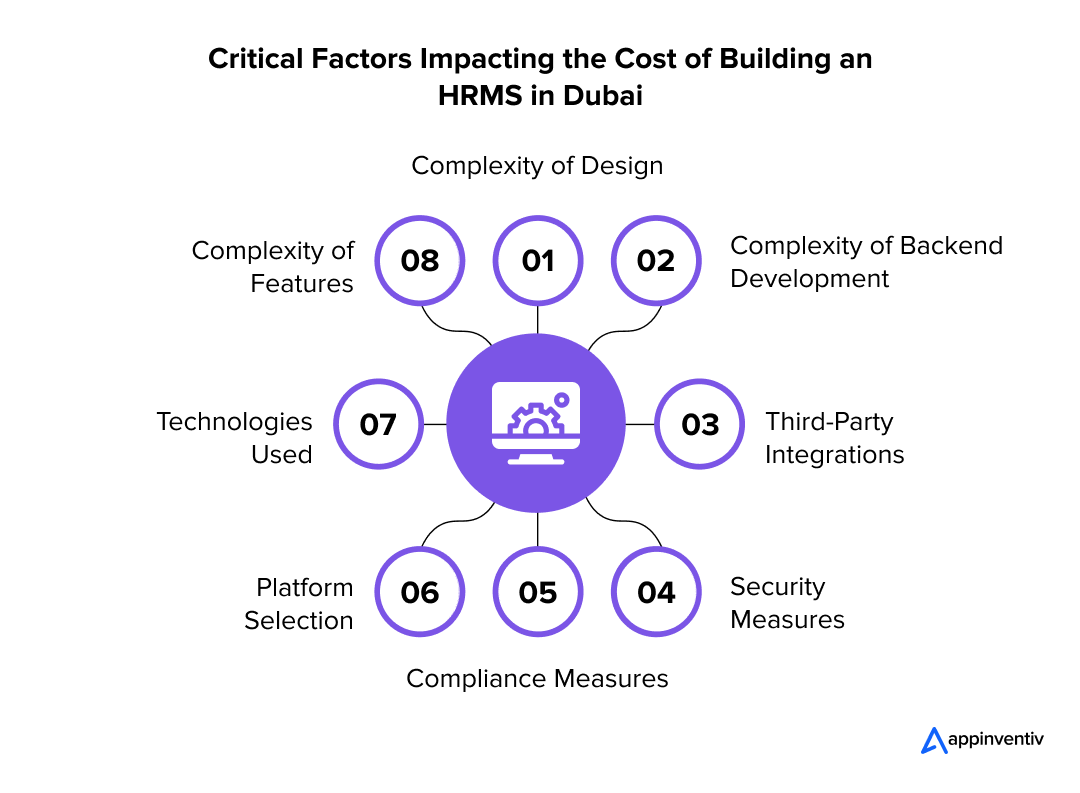
Complexity of Design
Creating an intuitive and visually appealing UI/UX is essential for enhancing user experience. However, intricate designs with custom elements and animations demand more effort, increasing costs.
Complexity of Backend Development
Backend systems like API integrations, servers, and databases form the core of HRMS. Building a scalable and robust backend requires skilled developers and advanced tools, directly impacting the cost.
Third-Party Integrations
Features such as payment gateways, social media logins, or GPS for attendance tracking improve system functionality. However, integrating these third-party services requires extra development time and resources, adding to the cost.
Security Measures
Protecting sensitive employee data is critical for HRMS. Implementing encryption, multi-factor authentication, and access control requires advanced expertise, increasing development expenses.
Compliance Measures
HRMS must adhere to Dubai’s labor laws and international standards like GDPR. Ensuring compliance involves extensive legal and technical adjustments, influencing the overall development cost.
Platform Selection
The choice of platform (web, Android, iOS, or cross-platform) significantly affects the cost. Developing for multiple platforms simultaneously increases the time and effort required, raising the budget.
Technologies Used
Advanced technologies like AI for recruitment or blockchain for secure payroll management enhance efficiency. However, implementing such cutting-edge technologies requires additional investment in expertise and tools.
Complexity of Features
Features like automated payroll, real-time analytics, and employee self-service add immense value to HRMS. However, the more advanced and customized the features, the higher the development cost.
Emerging Trends Shaping the Future of HRMS Software
Here are some future HR technology trends in Dubai: AI-powered workforce analytics and blockchain for secure verification to IoT integration for workplace efficiency. These advancements are shaping a smarter, more employee-centric HR landscape.
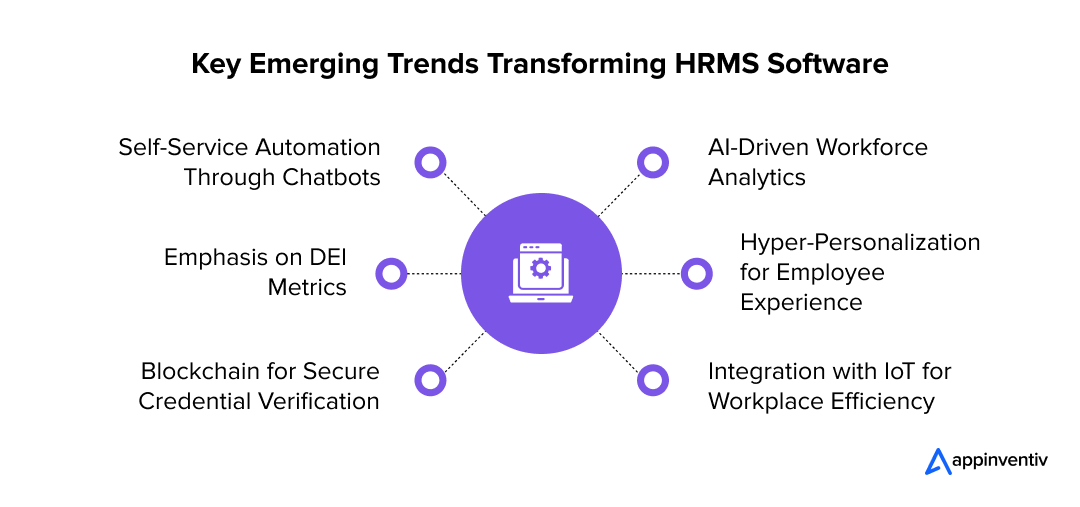
AI-Driven Workforce Analytics
HRMS systems are evolving to leverage data science and analytics for advanced workforce analytics, enabling real-time insights into employee performance, engagement, and potential risks like attrition. This predictive capability allows HR teams to transition from reactive to proactive strategies.
Hyper-Personalization for Employee Experience
Modern hr software in the UAE incorporates hyper-personalization, offering employees tailored experiences. From customized learning paths to adaptive wellness programs, these systems cater to individual preferences, boosting engagement and satisfaction.
Integration with IoT for Workplace Efficiency
The integration of IoT devices with HRMS software is redefining workplace management. From monitoring employee health through wearables to optimizing desk usage in hybrid models, this trend ensures data-driven workplace efficiency.
Blockchain for Secure Credential Verification
Blockchain technology is emerging as a game-changer in HRMS for secure and tamper-proof credential verification, reducing hiring fraud and enhancing trust in the recruitment process.
Emphasis on DEI Metrics
Diversity, Equity, and Inclusion (DEI) analytics are becoming integral to custom HRMS software in Dubai. Advanced tools now measure DEI metrics, providing actionable insights to foster a more inclusive workplace culture.
Self-Service Automation Through Chatbots
HRMS software development in Dubai is increasingly integrating chatbots powered by generative AI, enabling employees to access self-service options like leave requests, payroll queries, and policy updates, all through conversational interfaces.
Key Challenges and Solutions in Developing HRMS in Dubai
Developing an HRMS in Dubai has unique challenges, from regulatory compliance to integration complexities. Addressing these hurdles effectively is crucial for a successful implementation. Here are some key challenges and their solutions to consider.
Regulatory Compliance with Labor Laws
Challenge: Navigating complex UAE labor laws and ensuring HRMS aligns with local regulations can be challenging while building HRMS software in Dubai.
Solution: Collaborate with legal experts to incorporate compliance features, automate regulatory updates in the HRMS, and conduct periodic audits to ensure ongoing adherence.
Customization to Meet Diverse Business Needs
Challenge: Tailoring the HRMS to accommodate various industries and unique organizational requirements can increase development complexity.
Solution: Adopt modular architecture, work with experienced developers to enable flexible customizations, and include scalable solutions for future needs.
Integration with Existing Systems
Challenge: Ensuring seamless integration with legacy systems, payroll software, and other tools can lead to compatibility issues.
Solution: Use APIs and middleware solutions to bridge integration gaps, enhance system interoperability, and perform extensive testing to identify and resolve integration bottlenecks while developing hr software in UAE.
Data Security and Privacy Concerns
Challenge: Protecting sensitive employee data against cyber threats and meeting data privacy laws like DIFC-DPL is critical.
Solution: Implement advanced encryption, access control mechanisms, compliance with global security standards, and regular security audits to identify and mitigate vulnerabilities.
High Development and Maintenance Costs
Challenge: The cost of developing a feature-rich HRMS and ongoing maintenance can strain budgets.
Solution: Prioritize essential features for the MVP, partner with an experienced outsourcing firm to optimize costs, and use cloud-based solutions to reduce infrastructure expenses when building hr software in UAE.
How Appinventiv Can Help You Building an HRMS Software In Dubai
Appinventiv Dubai is your trusted software development company in Dubai, helping organizations across industries streamline their workforce management processes. With deep expertise in HR technology and a commitment to excellence, we’re well-equipped to build a robust, scalable SaaS-based HRMS software in the UAE tailored to your needs.
Proven Track Record with 3000+ Successful Projects: Appinventiv Dubai has delivered over 3000 projects across various sectors, demonstrating our commitment to excellence and value.
Global Team of 1600+ Experts: With over 1600 skilled professionals, we combine creativity, technical expertise, and domain knowledge to build workforce management software in Dubai that fits your unique organizational requirements.
Innovative and Streamlined Development Process: Our client-centric approach guarantees transparency, timely delivery, and bespoke solutions, ensuring your HRMS system aligns perfectly with your business objectives.
Recognition for Excellence: Awarded ‘Tech Company of the Year’ at the Times Business Awards 2023, Appinventiv stands as a symbol of innovation and reliability in software development.
Partner with Appinventiv Dubai to create an HRMS system that sets new industry standards while driving efficiency, productivity, and employee satisfaction.
FAQs
Q. Why is HR Software in UAE Important to Businesses?
A. HR software in UAE is crucial for businesses to efficiently manage workforce operations, streamline recruitment, and ensure compliance with local labor laws. With features like payroll automation, attendance tracking, and performance management, it enhances productivity, boosts employee engagement, and simplifies administrative tasks. Implementing a robust HRMS system enables organizations to make data-driven decisions and maintain a healthy, compliant work environment.
Q. What is the cost of HRMS software development in Dubai?
A. The cost of HRMS software development in Dubai typically ranges between $40,000 to $300,000, depending upon factors such as the complexity of features, customization requirements, integration needs, scalability, user interface design, and the choice of technology stack.
Q. What Technologies are Leveraged in HRMS software development in Dubai?
A. Developing HRMS software in Dubai often involves integrating cutting-edge technologies like Artificial Intelligence (AI), Cloud Computing, Blockchain, and Data Analytics. AI helps in predictive analytics for workforce planning, cloud technology ensures scalability and accessibility, blockchain guarantees secure credential verification, and data analytics provides actionable workforce insights for strategic decision-making.
Q. How Does SaaS-Based HRMS Software Benefit UAE Businesses?
A. SaaS-based HRMS software offers UAE businesses a scalable, cost-effective solution with minimal upfront investment. It provides easy access from any location, facilitates automatic updates, and ensures data security. These systems offer flexibility, compliance with local labor regulations, and integration with other business tools, resulting in streamlined operations, increased efficiency, and better team collaboration.


- In just 2 mins you will get a response
- Your idea is 100% protected by our Non Disclosure Agreement.

Custom Development or White Label Solutions: Which is Right for Your Business?
Key takeaways: 77% of companies are prioritizing digital transformation; the right tech approach is crucial for staying competitive. Custom development offers tailored solutions for unique needs, flexibility, and long-term scalability. Whereas, white-label solutions provide quick market entry, cost-efficiency, and easy customization for standard needs. Appinventiv’s expertise helps you navigate custom development vs white-label to choose…
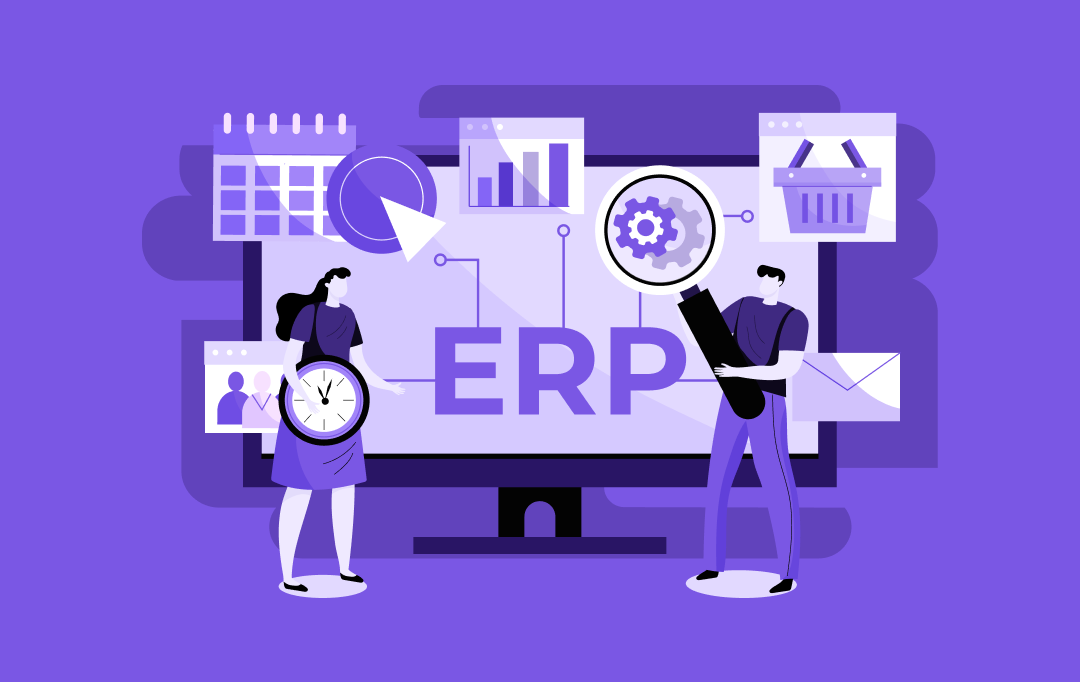
ERP Integration in Australia - Why It Is Essential and How to Do It Right
Key takeaways: ERP integration enables operational efficiency, reduced costs, and enhanced decision-making. Healthcare, finance, manufacturing, retail, and all the other sectors are benefiting from ERP integrations in Australia. While ERP integration can be costly, ranging from AUD 45,000 - AUD 450,000, it leads to significant long-term savings and scalability. Compliance with Australian regulations is critical,…
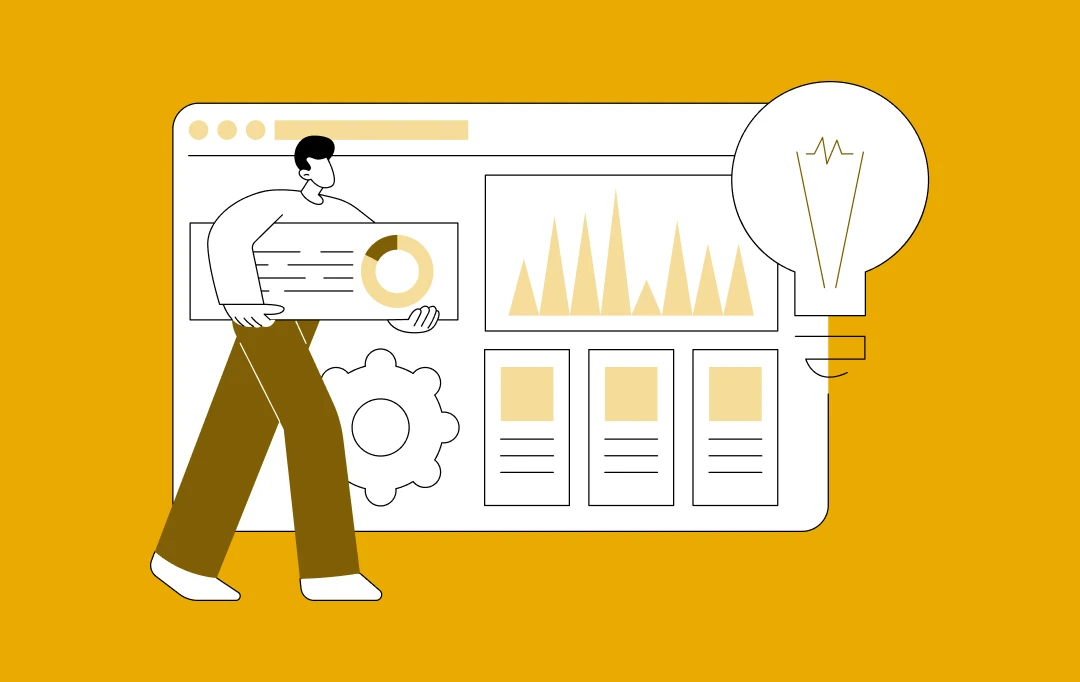
Predictive Analytics Software Development - Features, Benefits, Use Cases, Process, and Cost
Key Takeaways Predictive analytics helps businesses shift from “what has happened” to "what will happen," enabling proactive strategies rather than reactive ones. Real-time analytics and AI integration are driving the growth of predictive analytics, making it more accurate, accessible, and critical for business success. Custom predictive analytics solutions can enhance customer satisfaction, reduce costs, and…






